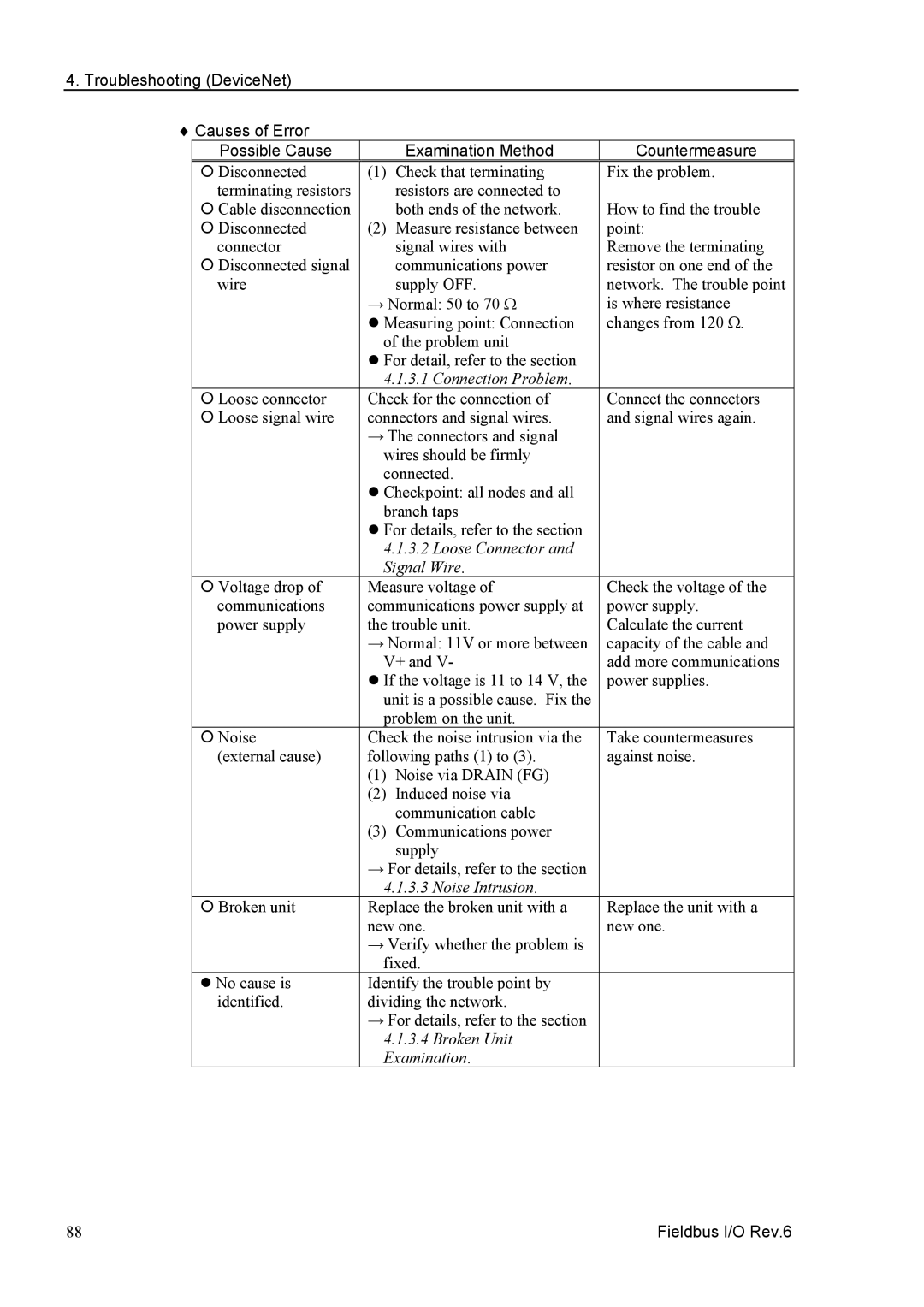4. Troubleshooting (DeviceNet)
♦ Causes of Error
Possible Cause |
| Examination Method | Countermeasure |
{ Disconnected | (1) | Check that terminating | Fix the problem. |
terminating resistors |
| resistors are connected to |
|
{ Cable disconnection |
| both ends of the network. | How to find the trouble |
{ Disconnected | (2) | Measure resistance between | point: |
connector |
| signal wires with | Remove the terminating |
{ Disconnected signal |
| communications power | resistor on one end of the |
wire |
| supply OFF. | network. The trouble point |
| → Normal: 50 to 70 Ω | is where resistance | |
| z Measuring point: Connection | changes from 120 Ω. | |
| of the problem unit |
| |
| z For detail, refer to the section |
| |
| 4.1.3.1 Connection Problem. |
| |
{ Loose connector | Check for the connection of | Connect the connectors | |
{ Loose signal wire | connectors and signal wires. | and signal wires again. | |
| → The connectors and signal |
| |
| wires should be firmly |
| |
| connected. |
| |
| z Checkpoint: all nodes and all |
| |
| branch taps |
| |
| z For details, refer to the section |
| |
| 4.1.3.2 Loose Connector and |
| |
| Signal Wire. |
| |
{ Voltage drop of | Measure voltage of | Check the voltage of the | |
communications | communications power supply at | power supply. | |
power supply | the trouble unit. | Calculate the current | |
| → Normal: 11V or more between | capacity of the cable and | |
| V+ and V- | add more communications | |
| z If the voltage is 11 to 14 V, the | power supplies. | |
| unit is a possible cause. Fix the |
| |
| problem on the unit. |
| |
{ Noise | Check the noise intrusion via the | Take countermeasures | |
(external cause) | following paths (1) to (3). | against noise. | |
| (1) | Noise via DRAIN (FG) |
|
| (2) | Induced noise via |
|
|
| communication cable |
|
| (3) | Communications power |
|
|
| supply |
|
| → For details, refer to the section |
| |
| 4.1.3.3 Noise Intrusion. |
| |
{ Broken unit | Replace the broken unit with a | Replace the unit with a | |
| new one. | new one. | |
| → Verify whether the problem is |
| |
| fixed. |
| |
z No cause is | Identify the trouble point by |
| |
identified. | dividing the network. |
| |
| → For details, refer to the section |
| |
| 4.1.3.4 Broken Unit |
| |
| Examination. |
| |
88 | Fieldbus I/O Rev.6 |
